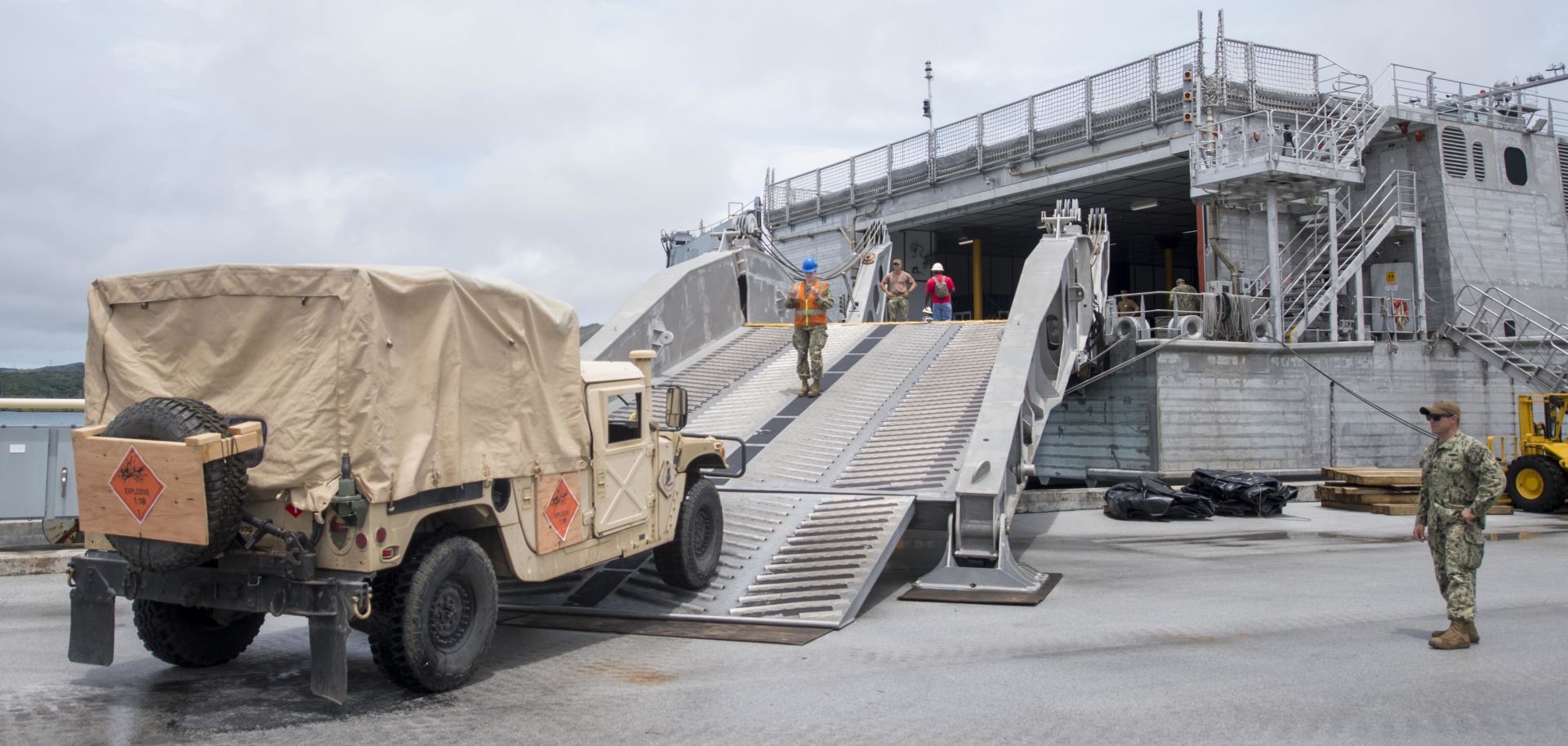ASSESSMENTS
Why Logistics Will Be Key to Any U.S. Conflict With Russia and China
Dec 17, 2018 | 11:00 GMT

Sailors attached to Navy Cargo Handling Battalion 1 with Detachment Guam move supplies from a naval base in Guam to the fast transport ship USNS Brunswick on Sept. 1, 2018. Washington has logistical shortcomings to sort out if it ever hopes to deploy troops effectively in Eurasia.
(LT. MARY SMITH/U.S. Navy)
Highlights
- The geographic distance that helps protect the United States will impinge upon its ability to project force across the Eurasian landmass unless it can improve its logistical supply chain.
- The emergence of new technologies, a weakening merchant marine fleet and many diplomatic issues such as national borders will all hinder Washington's ability to deploy in Eurasia.
- Aware of the challenges, the United States will continue its efforts to solve these problems through the establishment of new NATO commands, the purchase of new vessels and the harnessing of new AI technology.
Subscribe Now
SubscribeAlready have an account?
